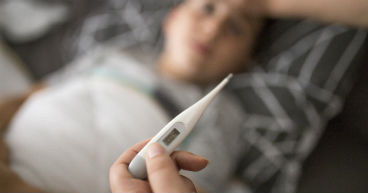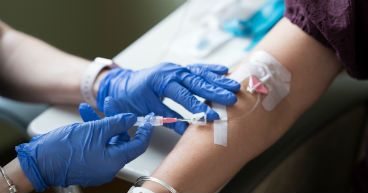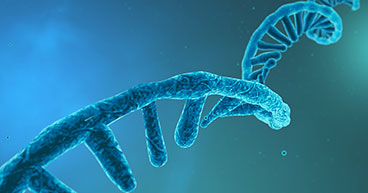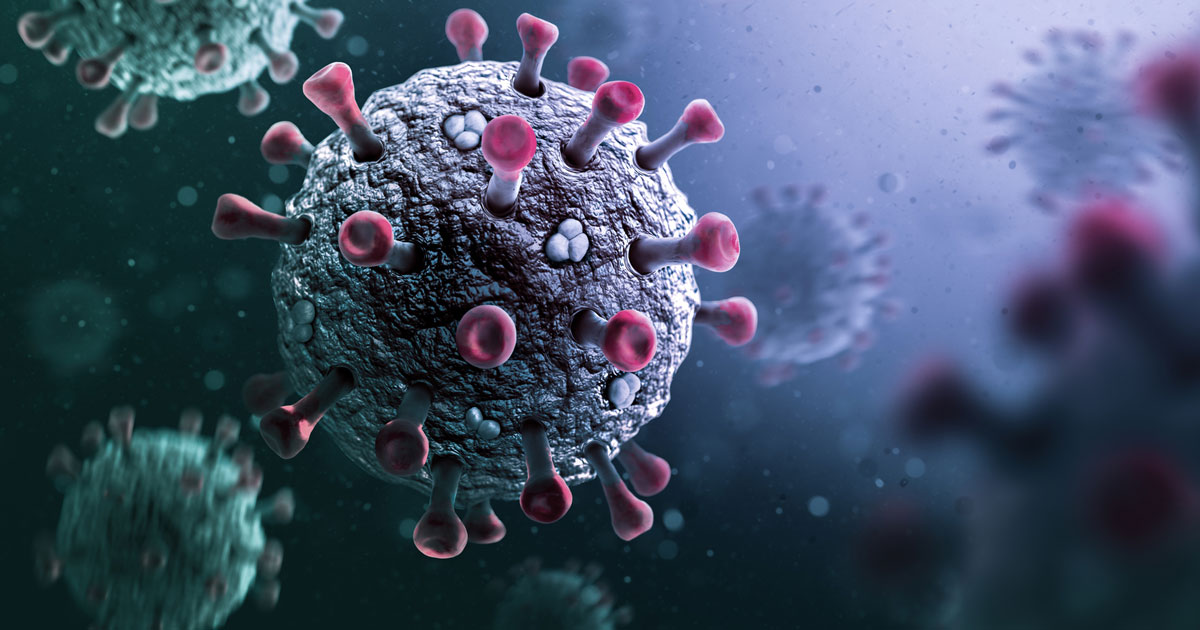
Everywhere you go, it seems like the pre-pandemic good ol’ days. Restaurants are packed, sports arenas are rocking, and airports are buzzing with activity. With mask mandates and many other restrictions lifted in many places, the hand-sanitized, surgical-masked days of social distancing seem like a thing of the past.
But if you’re a cancer patient, caregiver or family member, you may not want to let your guard down just yet. COVID-19 still poses a threat to cancer patients and others who have compromised immune systems. And the recently discovered BA.5 subvariant, which is the dominant strain among new cases, is proving to be highly contagious.
So, what steps should cancer patients take to protect themselves from new and constantly evolving coronavirus variants, subvariants and other mutations? In this article, we’ll explore:
- What are COVID-19 variants?
- Who should get vaccinated?
- What is EVUSHELD™?
- How can cancer patients protect themselves?
- What about your cancer care?
If you’ve put off cancer screening or treatment because of the pandemic, call us or chat online with a member of our team to schedule an appointment.
What are COVID-19 variants?
Viruses are like the weather: They’re constantly changing. These changes, or mutations, help the viruses adapt and survive new conditions. For instance, the frequently changing influenza virus that causes the flu requires new annual vaccines to help people fight off the latest strain.
Coronaviruses are constantly changing, too. More benign versions of the coronavirus cause many common colds. And while the immune system may recognize and fight off a virus that caused a cold last year, it may not recognize the new version that will cause a cold this year. In many cases, the mutations occur in the so-called spike proteins on the surface of the virus that allow them to attach themselves to cells and spread the infection.
The coronavirus that causes COVID-19 has already emerged in several versions called variants. You may know them as Delta and Omicron. But these variants also can change, producing subvariants. BA.5 is a particularly virulent subvariant of Omicron that may require booster shots to reduce the risk of infection, serious illness, hospitalization or death. Presidential physician Kevin O'Connor, DO says it is likely President Joe Biden was infected by the BA.5 subvariant.
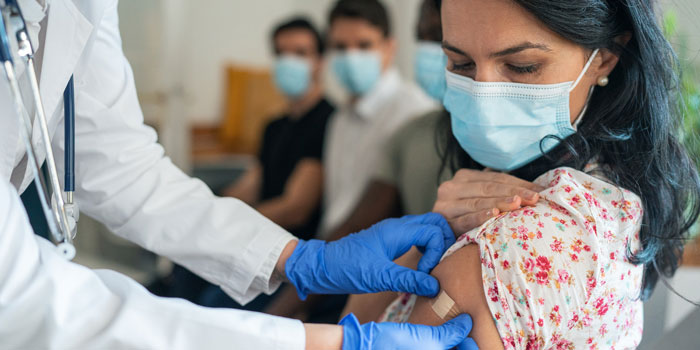
Who should get vaccinated?
Everyone who can get vaccinated should get vaccinated. And with the BA.5 variant proving to be highly contagious to those whose immunities may be waning, the White House and the U.S. Centers for Disease Control and Prevention (CDC) are urging Americans to get up to date with their vaccines and boosters. Staying current with vaccines and new recommendations may help people avoid the infection as new variants and subvariants surface. The CDC recommends all Americans six months and older get vaccinated.
“All the vaccines available in the United States are highly effective, substantially reduce the risk of COVID-19—especially severe disease—and have been associated with significant reductions in hospitalizations and deaths, even with variants that partially evade vaccine-induced immune responses,” says Suji Mathew, MD, Infectious Disease Physician and Chief of Medicine at Cancer Treatment Centers of America® (CTCA), Atlanta. “Unvaccinated individuals remained at the highest risk of infection, severe disease and death.”
The CDC says it’s especially important for the immunocompromised to get their vaccines and boosters. This includes cancer patients who:
- Are currently receiving chemotherapy, chimeric antigen receptor (CAR) T-cell therapy or other treatments for solid tumors and blood cancers
- Received a stem cell transplant within the last two years
- Received an organ transplant
- Are taking immune-suppression drugs
- Are taking high-dose steroids
- Have human immunodeficiency virus (HIV) that has a high viral load or a low CD4 count or are not currently taking medication to treat their HIV
Booster recommendations vary depending on which vaccine you initially received and which boosters you have had since.
How can cancer patients protect themselves?
The coronavirus that causes the COVID-19 infection has mutated and produced new variants, but the guidelines on how cancer patients can protect themselves have not changed.
“Aside from vaccination, the most effective way to prevent COVID-19 is to avoid being exposed to the virus that causes it,” Dr. Mathew says. “To protect yourself and prevent the spread of COVID-19, you need to take precautions.”
Steps to reduce risk of infection include:
- Wearing a well-fitting mask that covers your nose and mouth and encouraging your family members and caregivers to wear them
- Avoiding large crowds, when possible, and keeping space between yourself and others, especially in poorly ventilated indoor spaces
- Washing your hands frequently or using hand sanitizer
- Avoiding people who are sick and staying home if you’re sick
- Getting tested regularly if you can
What is EVUSHELD?
While vaccines are the best way for most cancer patients and caregivers to protect themselves from serious illness from COVID-19, they may not be a good option of some people. Vaccines may not work for some patients with a compromised immune system. And some people may be allergic to certain ingredients in the vaccine.
For a select group of patients, monoclonal antibody treatment with EVUSHELD a combination of the drugs tixagevimab and cilgavimab may be an option only when the vaccine is not. It is estimated that about 7 million Americans may meet the criteria to receive EVUSHELD.
The U.S. Food and Drug Administration (FDA) has authorized emergency use of EVUSHELD so it can be available during the pandemic, but it’s not FDA-approved. It’s considered “investigational” by the FDA and is still being studied.
This drug combination is intended for patients who:
- Are not currently infected with the coronavirus
- Have a moderately to severely compromised immune system and may not get a sufficient antibody boost from a vaccine
- Are at risk of anaphylaxis or other severe reaction to the vaccine’s ingredients.
“This should not be considered a substitute for vaccination in individuals for whom COVID-19 vaccination is recommended,” Dr. Mathew says. “Patients should talk to their physician if they think they or a loved one may be a candidate.”
Staying the course on cancer care
Cancer screenings and other disease-related doctor and hospital visits dropped considerably during the pandemic, raising fears of an impending surge in advanced-state cancer diagnoses in the coming years.
For instance, the U.S. Department of Veterans Affairs reported that, from 2019 to 2020, during the height of the pandemic:
- Colonoscopies decreased 55 percent.
- Mammograms dropped by 12 percent.
- Low-dose CT scans fell 49 percent.
It’s important for cancer patients, those at high risk of cancer and others in certain risk categories and age groups to stay the course on their screenings or diagnostic visits and treatments as the pandemic continues. For instance:
- Patients who have been previously treated for cancer should continue to get regular scans for a recurrence or development of a second cancer.
- Those who are at elevated risk because of family history, an environmental exposure, smoking or other risk factors should consult with a doctor about screening, such as a low-dose CT scan for lung cancer.
- People who have reached certain ages should talk to their doctor about recommended screenings, including a colonoscopy, mammogram or PSA test.
If you’ve put off cancer screening or treatment because of the pandemic, call us or chat online with a member of our team to schedule an appointment.

